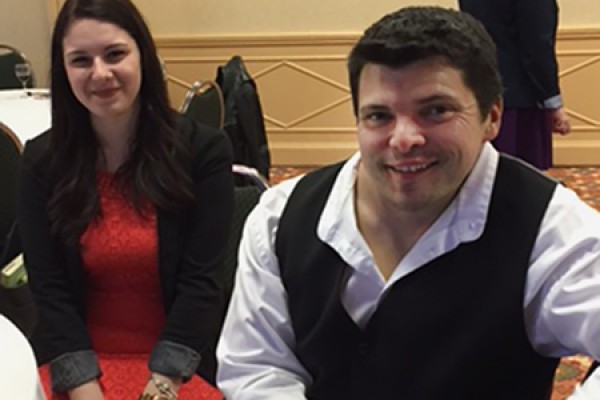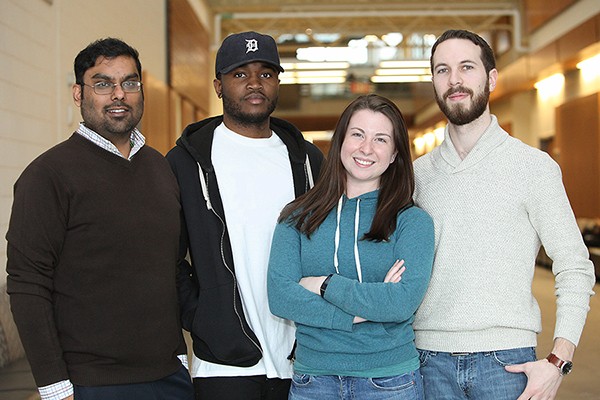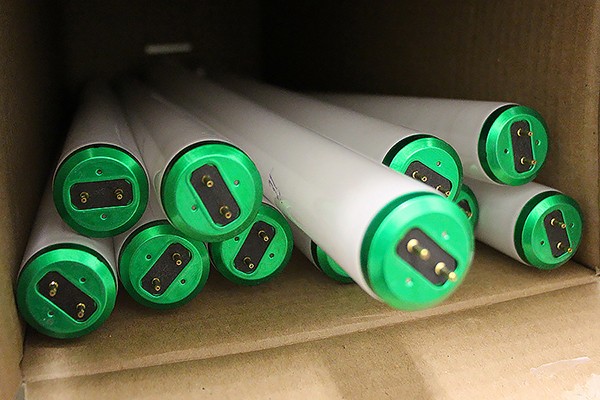 Myriah Diab constructed a house of cardboard to illustrate her project on the local hoarding response program.
Myriah Diab constructed a house of cardboard to illustrate her project on the local hoarding response program.
Working on a manual for the hoarding response program of Family Services Windsor-Essex was interesting, says Myriah Diab, so she wanted to present her learning experience in an equally interesting manner.
The fourth-year disability studies major made her project stand out by building a cardboard house to illustrate the problem of hoarding. Sheaves of paper poured out of windows and doors.
“I wanted to be creative, because the material I have is all documents,” said Diab, one of more than 50 students who presented information about their practicum placements with community agencies, Tuesday in the CAW Student Centre.
Diab spent a spent preparing a manual to train volunteers involved in addressing hoarding—everything from being respectful of people’s belongings to appropriate dress. Hoarding can pose dangers, she said.
“The agencies are focused on harm reduction, just making sure residents are safe,” Diab said. “This is more prevalent than you would think. A lot of it doesn’t get reported.”
The students were drawn from three senior courses: Community orientation to disability issues, Practicum in developmental psychology, and Practicum in psychology.
Emma Baker worked with Roots 2 Wings, developing an awareness campaign around Down syndrome. The “Rock your Socks!” theme encouraged people to wear colourful socks on March 21, chosen for signifying trisomy of the 21st chromosome.
“We want to see people with Down syndrome reach their full potential,” Baker said. “My placement really helped me understand how social interaction is a huge component of working with people with disabilities.”
Professor Marcia Gragg said the students gain experience while also providing valuable support to the placement agencies.
“Just the seven students in my class contributed over 600 hours of volunteer time,” she said. The students learn incredible things they can’t learn in the classroom, while making a big difference to the community. It’s really a win-win.”




